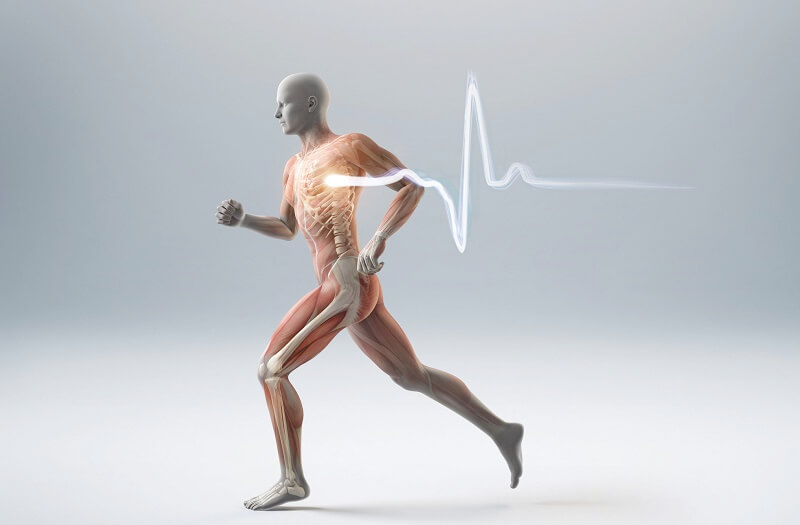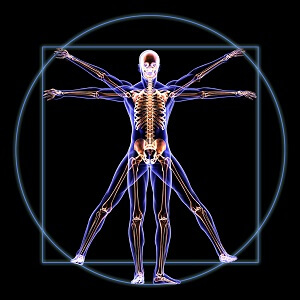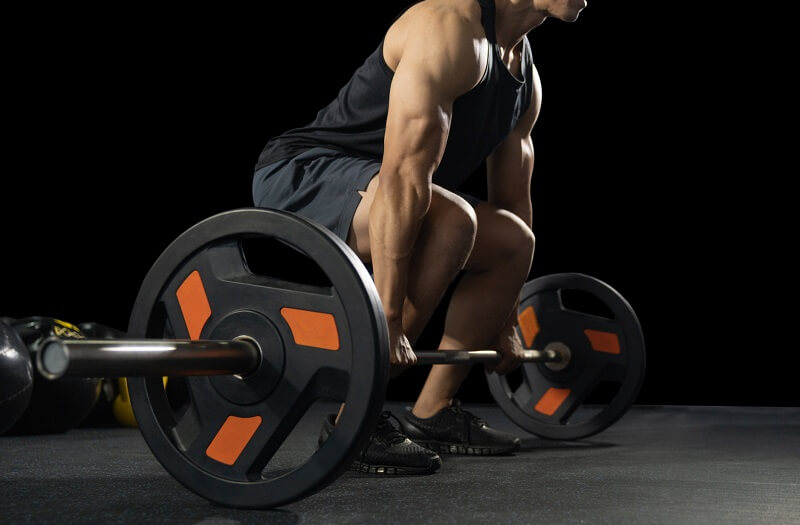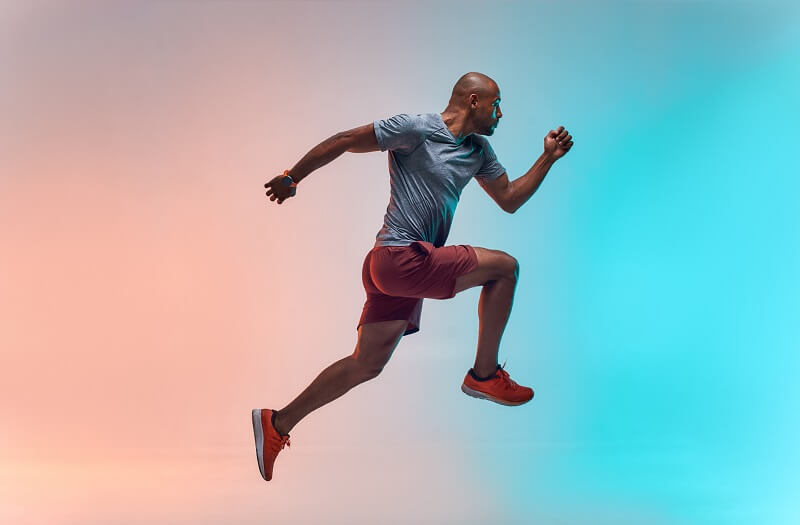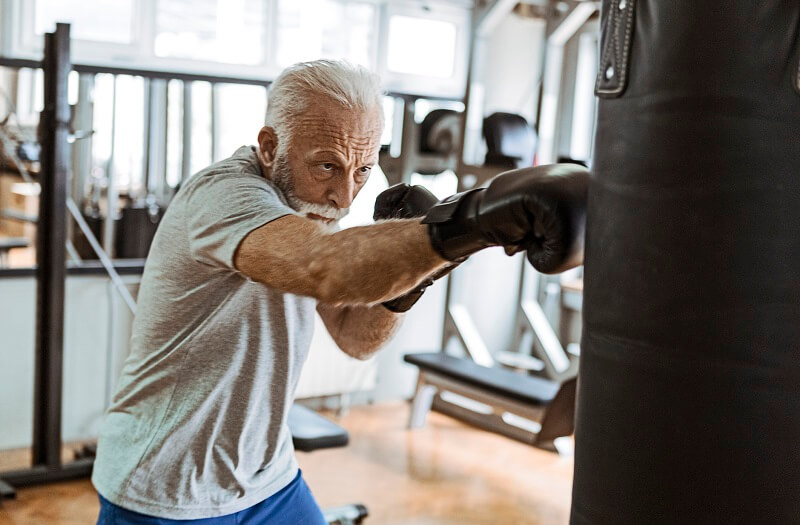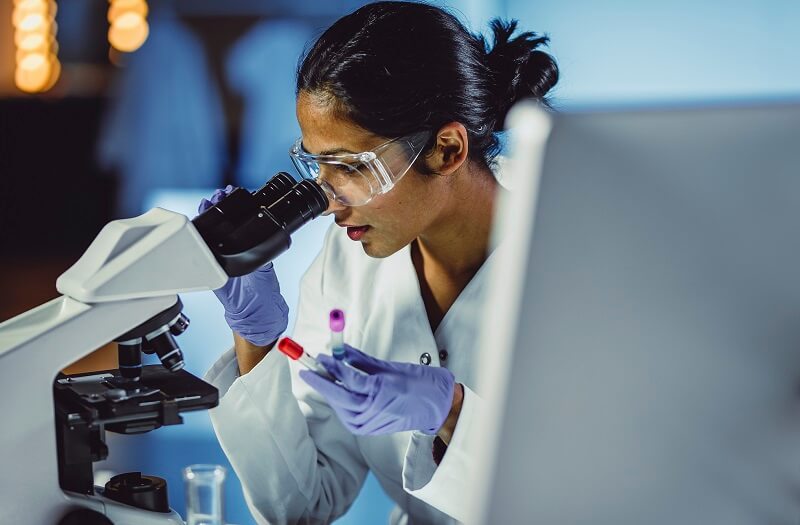- Home
- Growth Hormone
- Growth Hormone
- Growth Hormone Deficiency
- Growth Hormone Therapy
- Growth Hormone Injections
get startedThe Most Effective Hormone Replacement TherapiesRegulation of Muscle Mass by Growth Hormone and IGF-I
It is well known that human growth hormone (HGH) plays a major role in the growth and strength of muscle tissue.
HGH is a vital hormone secreted by the anterior pituitary gland. HGH is known as an “anabolic hormone” because it builds and repairs tissue such as muscle. HGH stimulates the release of Insulin-like growth factor 1 (IGF-1), which also has anabolic effects within the body, aiding in the growth and repair of muscles and other tissues throughout the body. IGF-1 and HGH also help to facilitate the body’s response to exercise. The positive anabolic and metabolic effects on the body of HGH and IGF-1 can improve exercise performance and help to increase muscle mass and muscle strength. This is particularly true of skeletal muscles.
How Is HGH Involved in the Mechanisms of Muscle Mass Regulation?
Due to its known anabolic properties, it is widely accepted by the medical community that HGH enhances muscle performance in sports and can improve muscle function in the elderly, or in adults suffering from age-related growth hormone depletion.
HGH increases muscle strength by enhancing muscle mass. HGH also stimulates whole-body protein synthesis, providing the energy required to power muscle function.
HGH also plays an important role in metabolism because it increases lean body mass and promotes more efficient burning of fats. This is why HGH is used for athletic improvement, advanced healing of sports injuries, and to treat musculoskeletal conditions, as well as the muscle weakness that occurs due to growth hormone deficiencies.
HGH and IGF-1 are instrumental in the growth of muscle tissue.
The Role of HGH and IGF-I in the Regulation of Body and Muscle Growth
In medical terminology, anything that regulates or influences the building and maintaining of muscle mass is said to have “anabolic” properties. This is why, HGH, like testosterone, is in the class of “anabolic hormones.”
Studies have shown that the anabolic action of HGH is regulated by the presence of IGF-1 in the blood. In addition to having its own “anabolic” effects, IGF-1 enhances the “anabolic” or muscle growing ability of HGH. IGF-1 and HGH combined provide a whole-body net effect of increasing protein synthesis and metabolism, resulting in overall improvements in muscle mass and muscle power.
Growth Hormone’s Effects on Skeletal Muscle and Muscle Fiber
Skeletal muscle is composed of fibers that are made up of different proteins. These fibers determine the strength and endurance capacity of muscle. Several studies have shown the positive role that HGH plays in the growth and repair of these muscle fibers.
As we age, these muscle fibers deteriorate and weaken. This effect is worsened by the loss of HGH as we get older.
HGH injections are not only used for “performance enhancement” by athletes but to help reverse this muscle loss in older individuals.
A recent study analyzed the impact of growth hormone therapy on muscle mass and power in adult men. The results showed that HGH injections “significantly increased” exercise capacity, led to positive changes in body compositions, and decreased total body fat and increased lean muscle mass.
In another study, the researchers studied whether growth hormone therapy combined with testosterone would increase muscle strength and mass in older adult patients. The authors found that that HGH therapy combined with testosterone replacement delivered “improvements in muscle mass and strength that would translate into better aerobic exercise performance.”
Studies have shown that HGH improves muscle mass and strength that translate into better physical performance.
How Does HGH Effect Muscle Power?
Many published studies have shown how growth hormone injections can increase muscle power. The following chart illustrates the best HGH injections to improve muscle power, in terms of the dosages used. The chart also points out how muscle power was measured, and how it was impacted by HGH in several of these studies.
HGH dose
Method to Measure Muscle Output
Effects of HGH (as compared to placebo)
2 IU, 2x Daily
Bicycle ergometer
Increase in exercise capacity
2.9 IU, 2x Daily
Bicycle ergometer
Further increase in exercise capacity
0.07 U/kg per day
Bicycle ergometer
Significant increase in oxygen volume, and maximum power output
1.2 IU/day for men
Treadmill
Significant increase in oxygen volume, and maximum power output
1.8 IU/day for women
Treadmill
Significant increase in oxygen volume, and maximum power output
HGH Use Among Athletes
HGH injections have been widely used by athletes and body builders to enhance performance.
A 2010 study examined the effect of a 2mg dose of HGH on body composition, endurance, strength, power, and sprint capacity. The study recruited “recreationally active men and women” in randomized control trials. As in many previous studies of the benefits of HGH, the results of this one showed increase in muscle mass and decreases in fat. But this one specifically looked at any increases in athletic ability. The results showed that HGH did indeed increase “sprint capacity,” as measured in seconds.
Other studies designed to review and explore the effects of HGH on athletic performance have all found that HGH can increase lean body mass and increase the bodies ability to metabolize fat.
The National Strength and Conditioning Association (NSCA), has concluded that, “Human growth hormone increases lean body mass within weeks of administration…”
The World Anti-doping Agency (WADA) says that athletes find HGH attractive as a doping agent, especially in power and endurance sports, “because of its ability to reduce body fat, its anabolic effects that increase muscle mass and strength, as well as its tissue-repairing effects on the musculoskeletal system.”
The fact that HGH is banned as a “performance enhancing drug” by WADA and several other amateur and professional sports organizations speaks volumes about its ability to improve strength, speed, and stamina.
The good news is that there is no such “ban” on the use of HGH for peak performance by everyday folk! Do not let the sports ban lead you to believe that HGH replacement therapy is dangerous or unsafe. The reason growth hormone is barred from professional sports is because of its now proven abilities to increase strength, stamina, and endurance.
In a professional athlete, HGH can give an unfair advantage over his or her competition; but for you, it can give you a much-needed advantage over getting older!
It is widely accepted by the medical community that HGH enhances muscle performance and function.
Now that you know a little bit more about the vital role HGH plays in building healthy and strong muscles, why not contact us today and learn more about the many life-changing benefits of growth hormone therapy.
- Growth Hormone Therapy








